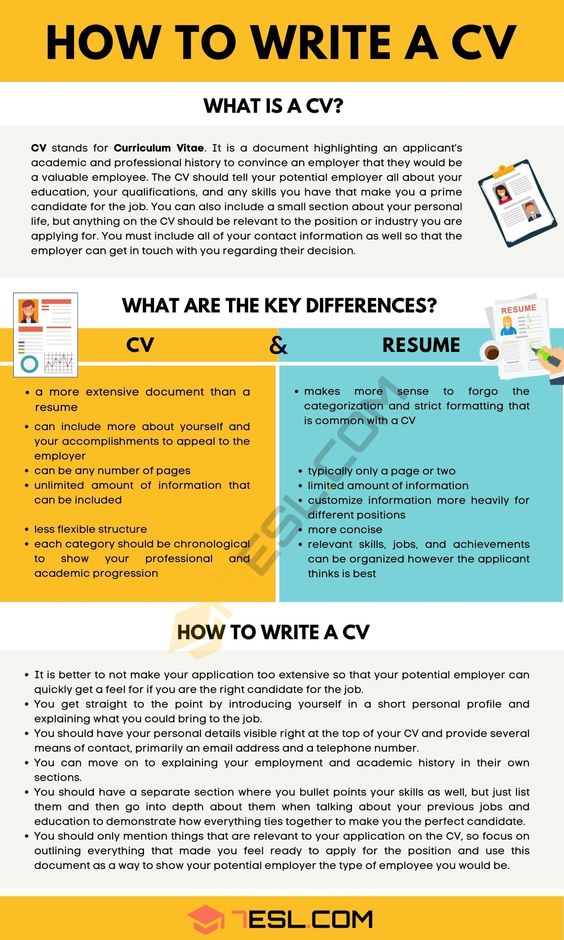Creating a Professional Summary:
Writing a professional summary for your CV is an important step in the process of creating an effective job application. This short summary should highlight your experience, skills, and accomplishments that make you a great candidate for the job. It should be written in a concise and clear manner that captures the attention of the reader.
Highlighting Your Education:
When writing a CV, it’s important to include information about your education. This should include the name of the school you attended, the degree you earned, and any specializations or certificates you obtained. Be sure to include any awards or honors you received during your studies.
Listing Your Work Experience:
Your work experience should be listed in reverse chronological order, starting with your most recent job. For each job, include the company name, job title, dates of employment, and a brief description of your responsibilities. If you have any relevant volunteer experience, include that as well.
Including Relevant Skills:
Your CV should also include a list of your relevant skills. This can include skills related to the job you’re applying for, as well as other skills that could be beneficial in the workplace. Be sure to include any technical skills, as well as any soft skills such as communication and problem-solving.
Describing Your Achievements:
In addition to listing your work experience and skills, you should also include a section on your achievements. This should include any awards or recognitions you have received, as well as any special projects you have completed. This is a great way to showcase your talents and accomplishments.
Including Additional Information:
Your CV should also include any additional information that could be relevant to the job. This could include hobbies, interests, and any other activities that could be beneficial to the employer. Be sure to keep this section brief and focus on the most relevant information.
Proofreading Your CV:
Once you have finished writing your CV, it’s important to proofread it for any errors. This includes checking for any typos, grammar mistakes, or factual inaccuracies. It’s also helpful to have someone else review your CV to make sure it’s up to standard.
You might find these FREE courses useful
- Create a Resume and Cover Letter with Google Docs
- Take your resume to the next level with Canva
- Quick resumeCreator with JavaScript
- How To Create An Interactive Resume
Formatting Your CV:
The last step in creating an effective CV is to format it properly. This includes using a professional font, making sure the margins are correct, and ensuring that each section is clearly labeled. It’s also important to make sure that your CV is easy to read and understand.


